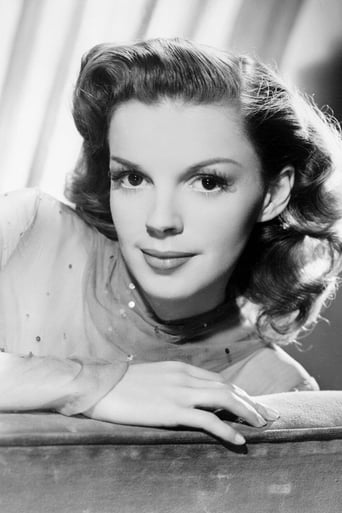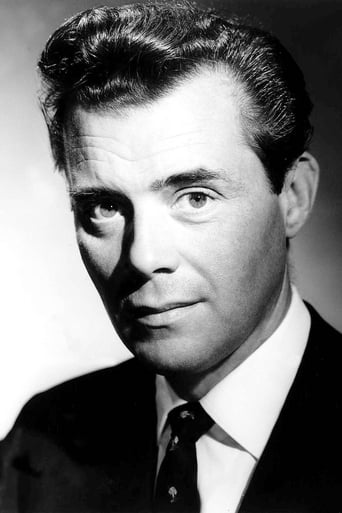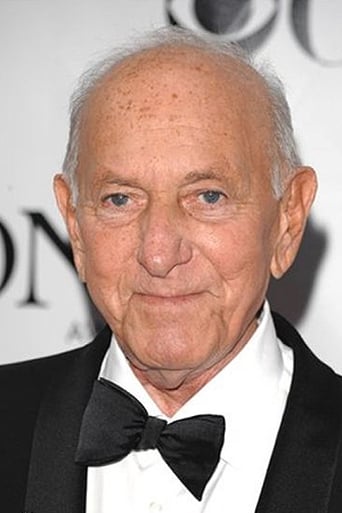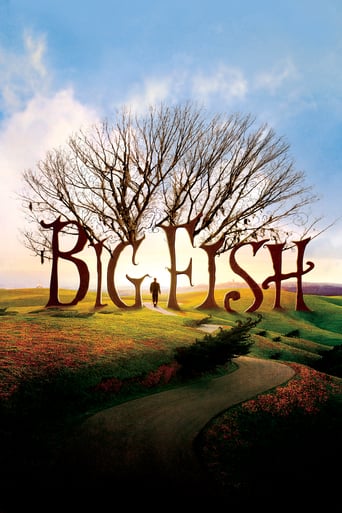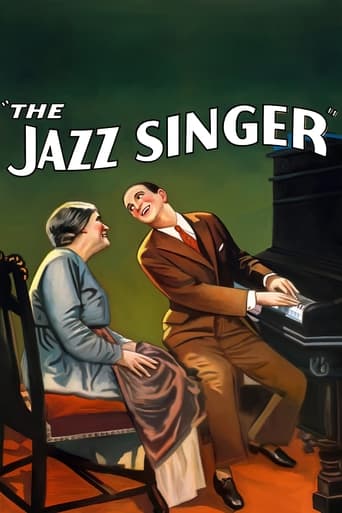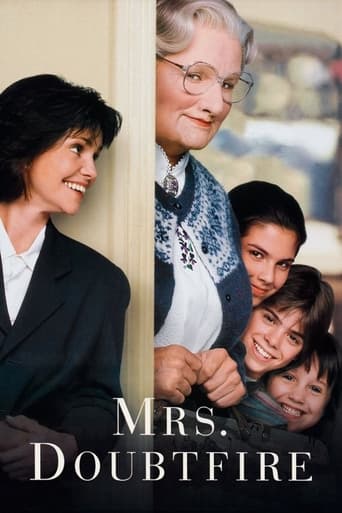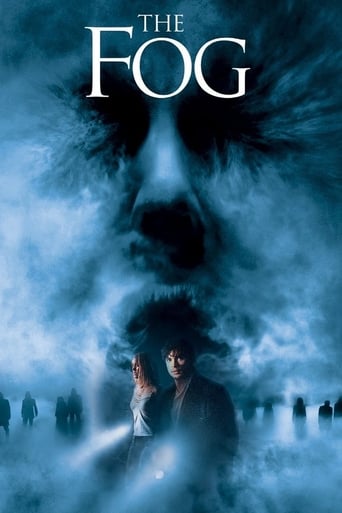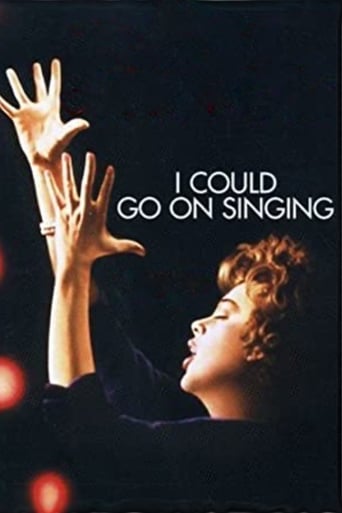
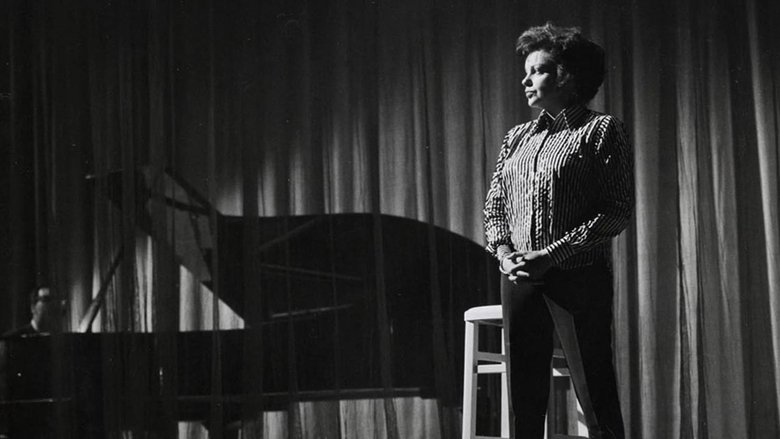
I Could Go on Singing (1963)
Jenny Bowman is a successful singer who, while on an engagement at the London Palladium, visits David Donne to see her son Matt again, spending a few glorious days with him while his father is away in Rome in an attempt to attain the family that she never had. When David returns, Matt is torn between his loyalty to his father and his affection for Jenny.
Watch Trailer
Cast


Similar titles
Reviews
This movie is the proof that the world is becoming a sick and dumb place
I wanted to but couldn't!
A Masterpiece!
The film never slows down or bores, plunging from one harrowing sequence to the next.
To paraphrase Judith Crist, Either you're a Garland fan, or your not. If you are, you should not miss the chance to see the one feature film which captures the talent and mystique of the mature Judy Garland. Here she is playing a character much like herself. Her strengths and weaknesses are exposed here, and she gives some concert performances within the film which are quite extraordinary. You see an older, somewhat time-ravaged Garland here, and the somewhat soapy screenplay (partially re-written by co-star Dirk Bogarde) shows off her truly great acting ability and her funny sense of humor. The film itself is filmed in gorgeous Technicolor and is filmed in and around London. The songs chosen for the production are all good ones, with "By Myself" being the standout. The title song, especially written for the film is also first-rate. If you see this, you will see why Judy Garland was sometimes referred to as the "female Jolson."
"I must keep on singing...with my heart on the wings of a song..." She sings these words at the end of the movie after life lets her down and 'the show must go on' anyway. This IS Judy Garland, with the ups and downs of life in and out of this movie. Although age begins to show on her face, her voice is still right on key with depth and tone, her expressions effortless and natural, and we feel her mood with empathy. Just watch and see. This is the life of a singer who has an affair with a man in London. She chooses not to marry the man, nor keep the young baby boy, so the man raises him in England. Judy's character goes on with her singing career, then later travels to London for a performance. She finds both her former lover and young teen son. Both Judy and the boy develop a natural motherly/son affection and the movie takes us on a bumpy ride thereafter since the father has much difficulty accepting this. Judy cannot and does not disappoint! I miss her.
This is the second of the two movies that Garland shot in 1963, the last, as it turned out, she would ever make for though she lived another six years the only singing she did for a camera was for television. As much as anyone and perhaps more than most Judy Garland was one of those performers you either love or detest and if you love her you'll love this glorified soap in which she gets to sing some classy numbers, throw the odd tantrum and break a heart or two. There's a wonderful shot of her standing in the wings at the Palladium and visibly coming alive as the band plays her intro. Unfortunately Dirk Bogarde invites comparisons with the other English actor with whom she co-starred and it really wasn't wise of Bogarde - who actually wrote (sans credit) one of the big emotional scenes - to pit himself against James Mason. In some ways this movie is similar to the other one, A Child Is Waiting, she shot that same year; same raw emotion, same fine acting but only one had songs. Though often dismissed this is, in fact, superior to such titles as In The Good Old Summertime, which she made at MGM in 1949 and no real Garland fan, gay or straight, will want to miss it.
Poorly made-up, coiffed, dressed and photographed, Miss Garland is at a distinct disadvantage before she is even out of the starting gate.And why leave the starting gate when the story is utterly lacking in either originality and conviction ? not to mention motivation.Even more ominous is the fact that this vehicle does not find her in the best of voice. Indeed it must be admitted that she sounds a bit ragged with the notable exception of "It Never Was You." This demerit coupled with the fact that the new songs are uninspired at best, renders the film's title open to waggery, as in those audience members who suggest that the word "not" should have been inserted before the word "go".It's true that the acting of all the players is admirable, quite a feat for this slush. Garland freezes the blood in an angry scene with Bogarde in a hotel room, and in the lovely Stoke Poges scene she again reveals how much more effective she always was, (as in "A Child is Waiting,") when she underplays with inescapable poignance, rather than tossing bathos all over the walls. And it is assuredly true, that in the telephone scene her acting brings to bear all that is great in her.But it is for Master Phillips that we reserve our especial praise. This young man manages his difficult assignment memorably. How else to explain how he handles his end of that same telephone conversation just as convincingly as just as heartbreakingly? What a pity that such a lush physical production as this could not have been extended to the star's appearance. One can only wonder how Ross Hunter would have transformed Judy into something recalling her former charms, given the pulchritude he enhanced in Misses Turner, Wyman, Hayward and Dee.


